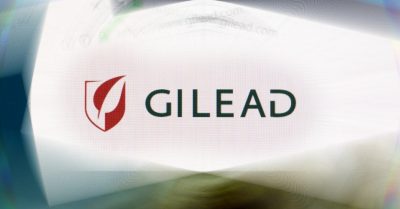‘Big Win’: Caving to Pressure Campaign, Gilead Sciences Relinquishes Monopoly Claim for Promising Coronavirus Treatment
"There's no doubt that the prospect of an enormous public backlash is what made the difference."

Government watchdog Public Citizen celebrated Wednesday afternoon as pharmaceutical giant Gilead Sciences backed off a monopoly claim for its drug that may treat the coronavirus which has sickened more than 487,000 people worldwide. Gilead, Public Citizen said, must now commit to ensuring the drug is accessible to all who need it.
Public Citizen applauded the news as a “big win” for those who spoke out against Gilead Sciences, whose former lobbyist, Joe Grogan, now serves on President Donald Trump‘s so-called “coronavirus task force.”
BIG WIN: Gilead just backed down.
The company caved under enormous public pressure and withdrew its appalling request for rare disease status on remdesivir.https://t.co/JmGGGouP3u
— Public Citizen (@Public_Citizen) March 25, 2020
“It was outrageous that Gilead ever sought an ‘orphan drug’ designation for remdesivir, which aims to treat a patient population that easily may number in the tens of millions in the U.S. alone,” Peter Maybarduk, director of Public Citizen’s Access to Medicines program, said in a statement. “Thankfully, under pressure, the company has backed down. There’s no doubt that the prospect of an enormous public backlash is what made the difference.”
Gilead’s claim to “orphan” drug status for remdesivir, one of several drugs being tested to treat the coronavirus, officially known as COVID-19, drew outrage this week from Public Citizen, Sen. Bernie Sanders (I-Vt.), and dozens of other public interest advocates.
Trump’s Food and Drug Administration granted the orphan status—which would allow a seven-year monopoly on the drug and could keep it out of reach of many Americans by preventing other companies from developing generic versions—even though Gilead developed remdesivir with at least $79 million in government funds. Orphan status is generally reserved for companies that may not recoup their research costs and for drugs which treat conditions affecting fewer than 200,000 people.
“Gilead must have been feeling the heat,” James Love, director of public interest non-profit Knowledge Ecology International, told NPR after Gilead reliquished its claim. “I think it’s embarrassing to take something that’s potentially the most widespread disease in the history of the pharmaceutical industry and claim it’s a rare disease.”
Soon after Public Citizen was joined by 50 other groups in demanding Gilead end its “unconscionable abuse of a program designed to incentivize research and development of treatments for rare diseases,” the company announced on Wednesday it would proceed without orphan drug status.
Public Citizen said that Gilead Sciences must go further than simply withdrawing its claim of orphan drug status, and actively work to ensure that remdesivir is widely produced and available for all who need it.
“Gilead must do more than make vague promises of reasonable pricing,” Maybarduk said. “It should commit right now to license the right and needed know-how to manufacture remdesivir to all qualified producers, in exchange for a modest royalty.”
“If the drug proves viable as a COVID-19 treatment,” he added, “the U.S. and the world will need the product available at a low price that reflects both the public health need and the potentially enormous market—with production at an unprecedented scale.”
From Common Dreams: Our work is licensed under a Creative Commons Attribution-Share Alike 3.0 License. Feel free to republish and share widely.
*
Note to readers: please click the share buttons above or below. Forward this article to your email lists. Crosspost on your blog site, internet forums. etc.
Featured image: The Gilead Sciences logo is seen on the company website. (Photo: Ivan Radic/Flickr/cc)

